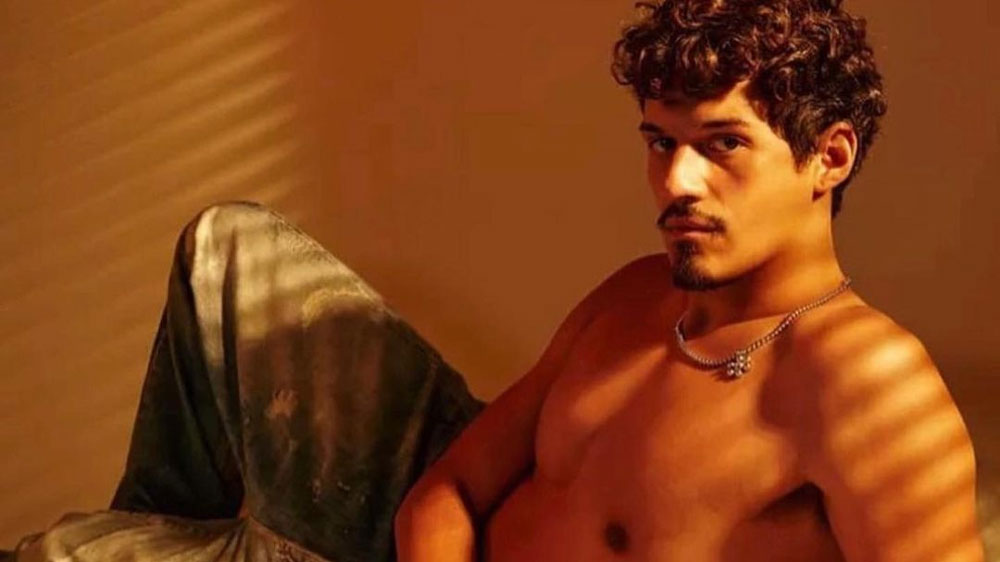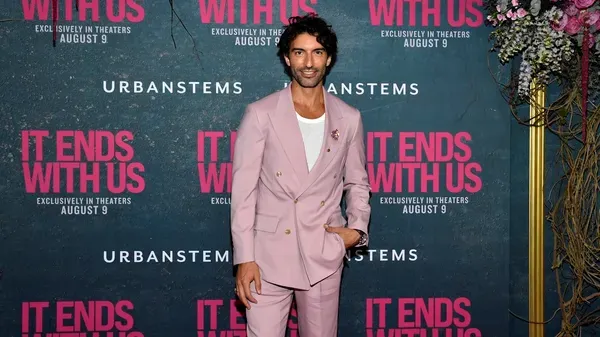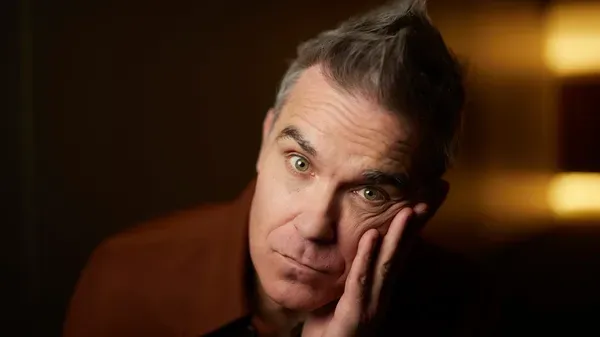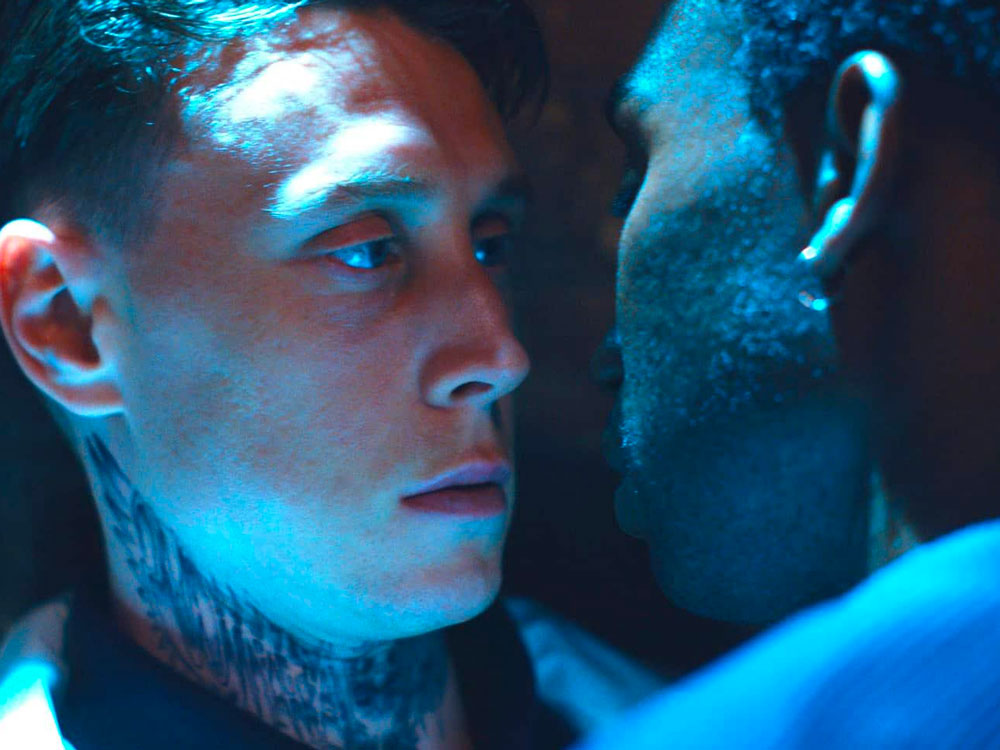
March 8, 2023
7 Films to Check Out from the 73rd Berlin Film Festival
C.J. Prince READ TIME: 11 MIN.
The 73rd edition of the Berlin Film Festival came and went this year with a sense of relief. Despite being one of the last film festivals to run just before the pandemic in 2020, a shift to an all virtual edition in 2021 and a compromised in-person event for 2022 (hampered by restrictions due to the spread of the Omicron variant of COVID at the time) made Berlin one of the most impacted festivals of the "Big Three." Cannes had to cancel its 2020 edition but carried on in 2021, while Venice refused to shut down or adapt itself beyond implementing whatever measures the Italian government had in place at the time.
With not as many big names in the main competition, this year's Berlinale was also a more low-key affair than usual. One of the biggest names was jury president Kristen Stewart, who ended up surprising festival goers when she announced Nicolas Philibert's "On the Adamant" as the recipient of the Golden Bear, the festival's top prize. A French documentary about a houseboat in Paris that functions as a day-care center for mental health patients, the film is more of an unconventional choice given that the prize tends to go to narrative works. Nevertheless, it is a welcome change to the status quo that follows Venice, where jury president Julianne Moore gave the Golden Lion to Laura Poitras' documentary "All the Beauty and the Bloodshed." Perhaps it's too much to expect Cannes to let a documentary compete for the Palme d'Or this year, but we will find out soon enough.
While I couldn't catch all the titles I would have liked to see from this year's Berlin Film Festival, I did see some of the selection and found some titles worth keeping an eye on for the future. There was also an impressive amount of queer-themed titles this year, with the festival's Teddy Award for queer films showcasing over three dozen nominees across both narrative and documentary features. It means there are lots of titles to discover from this year's selection, which should hopefully travel thanks to other film festivals or through distributors willing to acquire and release some of the Berlin lineup in America. For now, here are seven films that made an impression.
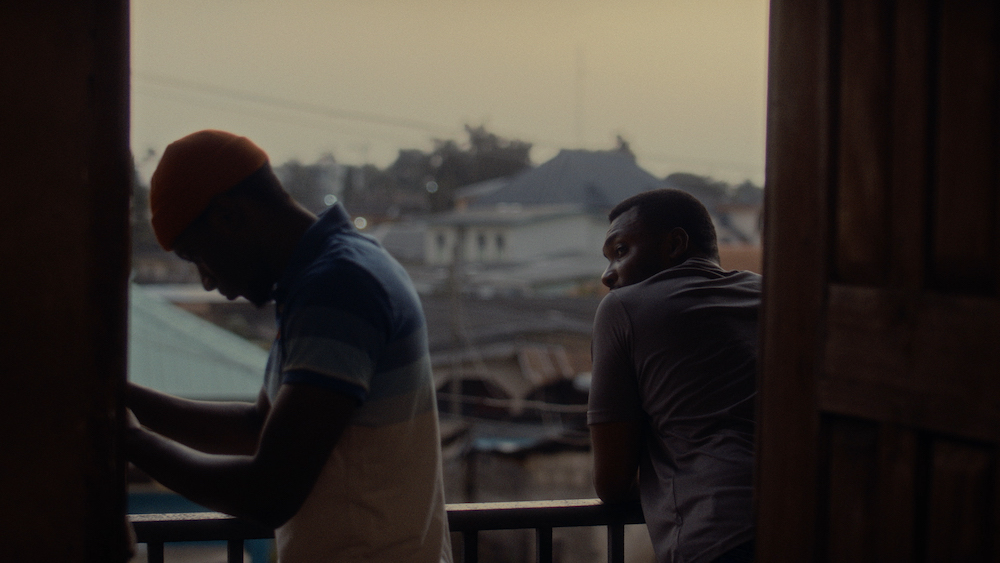
Source: Courtesy of Berlinale, Polymath Pictures
"All the Colors in the World are Between Black and White"
Babatunde Apalowo's debut feature screened in the Panorama sidebar and came away from the festival with the Teddy Award for Best Feature. Set in Lagos, Nigeria, the film follows the quiet, reserved Bambino (Tope Tedela), who meets aspiring photographer Bawa (Riyo David) and strikes up a friendship with him. Bambino is unsure of his sexuality, refusing the advances of his female friend Ifeyinwa (Martha Ehinome Orhiere), and Bawa continually pushes Bambino to act on the physical attraction between them which throws their budding relationship into turmoil.
In a director's statement, Apalowo says his film began as a love letter to Lagos before he witnessed a man get lynched and killed over his sexual orientation. That incident changed his perspective, which led him to create a story about an outsider in the city. Apalowo's precision as a director, with carefully composed frames and periodic aspect ratio changes from widescreen to full screen, highlight the oppressive environment that prevents Bambino from figuring out his own identity. The film's handling of Bambino and Bawa's relationship, while conservative due to Nigeria's outlawing of homosexuality, shows a risk and defiance from the cast and crew that makes it easy to understand why the Teddy Award jury responded to Apalowo's tale of two men trying to find love in a place that refuses to let them be who they are.
"About Thirty"
Tucked into the festival's Forum sidebar is Martín Shanly's sophomore feature, which takes place over one day in the life of Arturo (played by Shanly) as he attends the wedding of an old friend. Arturo opens the film stating it's possibly the worst day of his life, and we soon find out why: he survives a car crash on the way to the reception, then receives a cold welcome to the party as he bumps into different people from his past he has a history with, including his ex-boyfriend.
Shanly's digressive structure frequently cuts away from the wedding day to flashbacks that provide background on the various feuds or fallings out he's had over the years. It's a scattered approach meant to resemble Arturo's arrested development, as he finds himself unable to settle into any sort of normalcy or routine (at one point he blows a bunch of cash on a retreat to take hallucinogens in the woods, much to the displeasure of his friend who he still owes money to). On the surface, "About Thirty" looks like an affable riff on slacker comedies with its low-key charms (the use of smash cuts back and forth through time make for some of the film's biggest laughs), but there's a melancholic edge. The jumbled form reveals itself to be less of a digression and more of a distraction for Arturo from his troubled past, with his inability to process a family tragedy mistaken by those around him as not being able to "grow up."
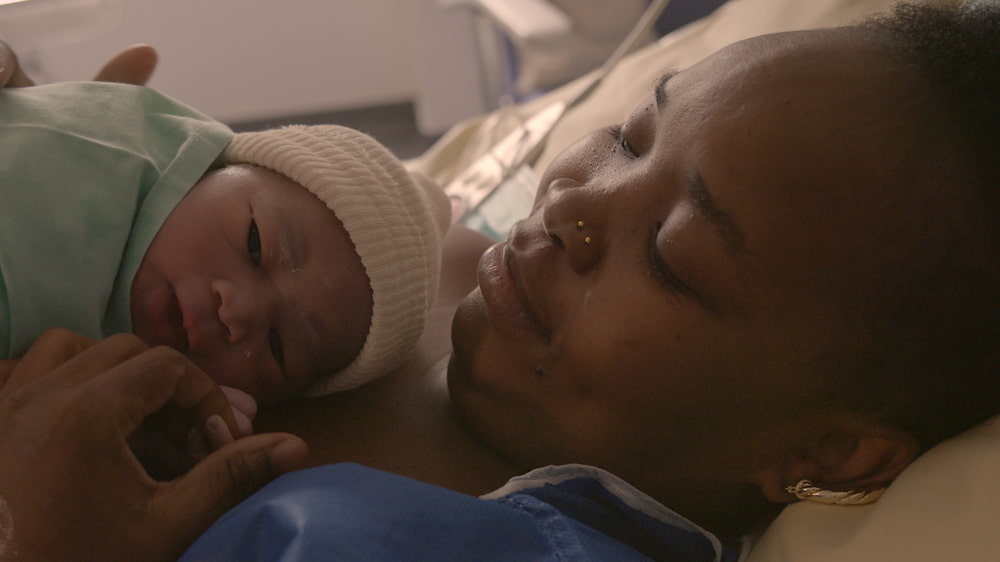
Source: Courtesy of Berlinale, Madison Films
"Our Body"
One of the highest praised films at this year's festival, "Our Body" has French filmmaker Claire Simon document a gynecological hospital in Paris, watching the doctors and nurses work with female patients on pregnancies, abortions, medically assisted conception, cancer treatment, and treatment for transgender patients. Simon's camera captures the entire spectrum of life from birth to death through the different people she encounters in the hospital, always approaching each subject with an open mind and compassion for their respective situations.
Given how many documentaries have been made about hospitals or medical care in the past (we can go further back to Frederick Wiseman's 1970 film "Hospital" or as recently as 2022's "De Humani Corporis Fabrica"), it's surprising how powerful "Our Body" is, which largely has to do with Simon's direction. While observant on each consultation between patient and doctor, she prefers to make her presence known rather than take a fly on the wall approach. Every moment is filmed with the same level of detail, respect, and sympathy for everyone involved, and in turn creates an inclusive, equal space across its almost three hour runtime. It's a humanist triumph from Simon (who, at one point, finds herself in front of the cameras when she discovers a lump in her arm), and while it's early in 2023 it should be hard to imagine "Our Body" as anything but one of the best documentaries of the year.
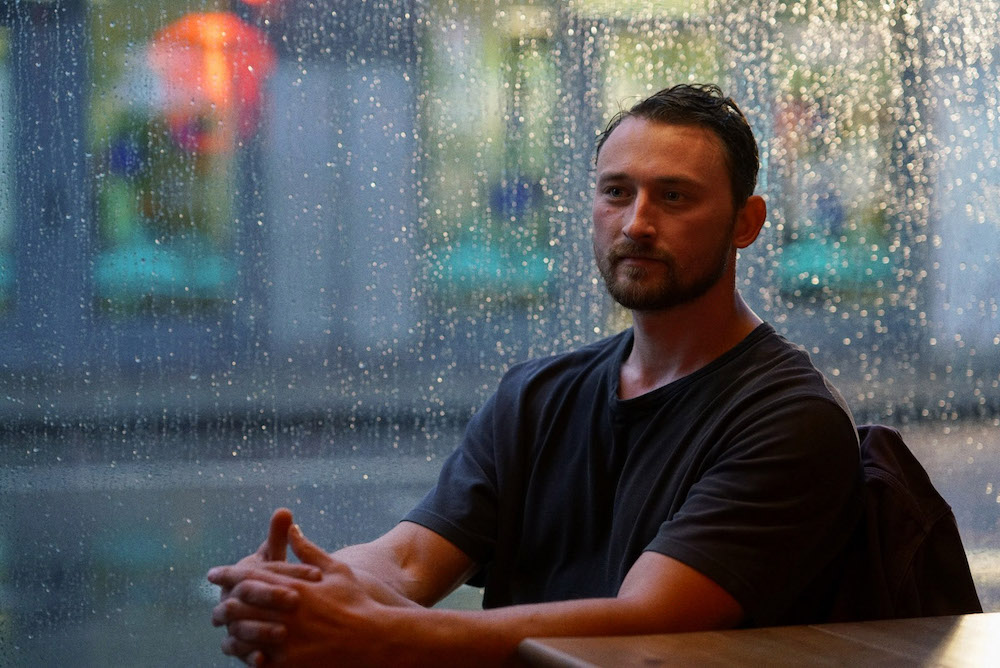
Source: Courtesy of Berlinale, Erik De Cnodder
"Here"
In Brussels, a construction worker named Stefan (Stefan Gota) clears out his fridge to make a soup before traveling back home to Romania to see his mother. He spends his last days visiting friends and family in the city, gifting them dishes of the soup he made and implying he might not return. At the same time, a Belgian-Chinese woman named ShuXiu (Liyo Gong) studies moss and works at her extended family's Chinese restaurant on the side. Stefan and ShuXiu cross paths more than once, and form a temporary bond over their shared interest in the nature around them.
That's more or less the plot of "Here," the fourth feature by Belgian filmmaker Bas Devos, and described in plain terms it can sound like a tough sell. But Devos, who's been quietly making a name for himself in the festival circuit with films like "Violet" and "Ghost Tropic," creates a vivid mood through his portrayal of Brussels and the pockets of forests and greenery within the urban setting. The moss that ShuXiu studies functions as a central metaphor for the film, which uses the complex yet quiet and ever-present nature of moss to touch upon ideas around human connection and our relationship to the environment. Whether it's watching the lights come on in a park during a rainstorm at dusk, a mechanic relaying a dream of his family visiting him at a hospital, or a dream sequence where a forest dissolves into itself, "Here" possesses a warm, calming atmosphere that makes it impossible not to adjust to its gentle rhythms.
"Here" premiered in the festival's Encounters sidebar, where it deservedly won the section's top prize. It represents the best kind of experience a film can offer, where it's best to experience it than read or talk about it, or to give your trust over to it and have that rewarded in spades.
"Femme"
A feature-length extension of the 2021 short film of the same name, "Femme" is the kind of psychosexual thriller that's bound to turn heads with its charged premise. After performing on stage, drag queen Jules (Nathan Stewart-Jarrett) gets brutally attacked on his way home by a homophobic man. Weeks later and still traumatized by the attack, Jules goes out to a gay sauna where he sees his attacker (George MacKay), a closeted man named Preston. Jules isn't recognized due to not being in drag, so he decides to start hooking up with Preston in the hopes of enacting revenge.
Directors Sam H. Freeman and Ng Choon Ping put identity and space at the forefront, observing both Jules and Preston as two men engaged in different kinds of performances; Preston as the hot-tempered ball of masculine rage, and Jules as the proud, outspoken feminine queen when performing on stage. "Femme" isn't interested in equating their personalities so much as it showcases similarities between how both characters go through life, seizing power through their respective performances, and then seeing how those personalities clash against each other. It's Freeman and Ping's ability to frame their film in those terms that prevents it from falling into exploitation and cheap provocation, and Stewart-Jarrett's performance as Jules anchors the film, with his ability to adjust his behavior depending on the environment he's in as a method of survival. While the film still has no distributor in North America, it received a big standing ovation at its festival premiere. Combined with its two lead actors and buzzy premise, it should be a matter of time before someone brings "Femme" stateside.
"Bad Living" and "Living Bad"
One of the festival's most ambitious picks came from Portuguese filmmaker João Canijo, whose diptych "Bad Living" and "Living Bad" were shown in the Competition and Encounters sidebar. "Bad Living" played in Competition and took home the Silver Bear Jury Prize, while "Living Bad" came away empty-handed; despite the festival's best intentions, the fact that the latter film was slotted in a sidebar suggested it was the weaker of the two.
Both films take place at the same time in the same location: a secluded hotel run by several generations of women from the same family. "Bad Living" takes on the perspective of the women running the hotel, with the unexpected arrival of granddaughter Salome (Madalena Almeida) throwing her mother Piedade (Anabela Moreira) and grandmother Sara (Rita Blanco) off balance. All three women act cruel to each other in various ways, with Piedade getting the brunt of it as her mother and daughter see her as a failure. Canijo blocks and frames the film to such a meticulous degree it can feel suffocating and awe-inspiring at the same time, with ultra-precise compositions and camera movements that can layer on top of each other whenever Canijo utilizes the various mirrors and reflective surfaces all over the hotel. Your mileage may vary when it comes to how patient you'll be with Canijo's deliberate pacing and visual precision, but there's no denying how impressive both films look.
Then there's "Living Bad," which takes us back to the beginning of "Bad Living" but replays everything from the perspective of three different sets of guests. Canijo structures his second film (and no matter who tells you otherwise, it's best to watch "Bad Living" before "Living Bad") into three separate segments, with the story of each guest (or guests) a loose adaptation of a different August Strindberg play. Those details shouldn't matter too much though, as the compressed, episodic structure lets him hit on the same ideas as "Bad Living" with more of a blunt force, like the lengthy final section where a lesbian couple's relationship falls apart thanks to one of the women's domineering mother. Unsurprisingly, "Bad Living" and "Living Bad" work better as a pair than on their own, and Canijo's ambition along with his assured execution make his double feature a fascinating project.
